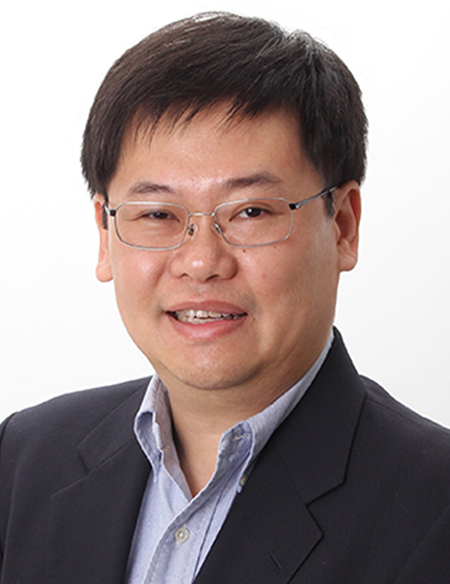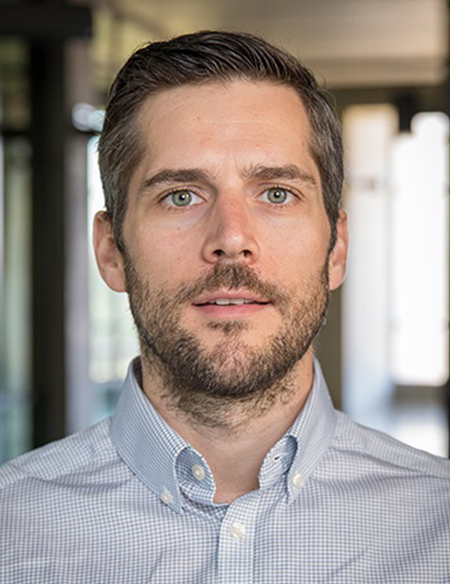
Mathematician, Engineer receive Newton Award for Transformative Ideas during COVID-19 Pandemic
UC San Diego’s Melvin Leok and Boris Kramer earn DOD funding for research that could revolutionize both civilian and military science
By:
- Cynthia Dillon and Ioana Patringenaru
Media Contact:
- Cynthia Dillon - cdillon@ucsd.edu
- Ioana Patringenaru - ipatrin@ucsd.edu
Published Date
By:
- Cynthia Dillon and Ioana Patringenaru
Share This:
Article Content
The years between 1665 and 1667, during the bubonic plague in England, have been called the “Years of Wonder” for Sir Isaac Newton, the famous scientist-mathematician who developed the principles of modern physics, including the laws of motion. While the plague raged, Newton sheltered in the countryside where he focused on work that ultimately changed the world. Years later, he referred to that time as the most productive of his life.

Professor of Mathematics Melvin Leok. Photo courtesy of Melvin Leok, UC San Diego Department of Mathematics
Fast forward more than 350 years, to 2020 and the novel coronavirus pandemic, when the U.S. Department of Defense (DOD) is recognizing Newtonian excellence with its Newton Award for Transformative Ideas during the COVID-19 Pandemic. Two UC San Diego professors—Melvin Leok from the Department of Mathematics (Division of Physical Sciences) and Boris Kramer from the Department of Mechanical and Aerospace Engineering (Jacobs School of Engineering) are among the 13 award recipients. They were selected from a pool of 548 applicants for their vision to study and efficiently simulate complex interconnected systems for long-term analysis.
For example, most mathematical descriptions of complex systems such as an aircraft, smart robots, the Internet-of-Things, satellites, etc., end up with large-scale models that are interconnected systems-of-systems, explained Kramer. “Imagine you want to simulate these systems for long periods of time to do analysis and learn more about their reliability and to control them—it’s impossible at that scale,” he said, adding that researchers have tried making these simulations cheaper for decades by making many approximations but without a good solution. “That's where Melvin Leok and I connected. Melvin is an expert in the structure of interconnected systems, and my expertise is in approximating very expensive computational models with accurate but much cheaper surrogate models.”

Assistant Professor in Mechanical and Aerospace Engineering Boris Kramer. Photo courtesy of UC San Diego Jacobs School of Engineering
The tandem approach matched up with the DOD’s challenge to applicants to propose novel conceptual frameworks or theory-based approaches that utilized analytical reasoning, calculations, simulations and thought experiments. Together, Leok and Kramer submitted a two-part proposal titled, “Geometric Structure-Preserving Model Reduction for Large-Scale Interconnected Systems.” With the Newton Award, the UC San Diego researchers can now dive deep into the fundamentals of what “a good approximation” means and the ways to design it.
“We were blown away by the overwhelming response and the ingenuity and creativity in the proposals we reviewed,” said JihFen Lei, acting director of defense research and engineering for research and technology. “We look forward to seeing where the development of these ideas leads us.”
To that end, Leok will use his expertise in developing accurate, structure-preserving models of simpler mechanical interconnected systems, evolving on curved spaces, and extend them to larger scale engineering systems.
“By synthesizing this with Boris Kramer’s expertise in surrogate models for large-scale systems, we aim to develop systematic methods for constructing scalable models of more complex engineered systems, while respecting the interconnection and geometric structure, so that they are computationally tractable on a range of hardware platforms,” said Leok, adding that first they will reexamine the characteristics of a good surrogate model for a geometric interconnected system. “Then we’ll develop metrics for quantifying this.”
All Newton Award recipients will receive $50,000 over a six-month period of performance. At the end of the award period, the researchers will brief the Office of the Under Secretary of Defense for Research and Engineering leadership.
Leok explained that while the award is intended to support the principal investigators’ work, he and Kramer hope follow-up funding will support student involvement in their research.
The hundreds of proposals for the Newton Award came from 184 U.S.-affiliated and accredited universities and research centers across 41 states and the District of Columbia. Forty-one of the proposals came from historically black colleges and universities or other minority-serving institutions. Proposals spanned topic areas ranging from applied mathematics and quantum physics to the social sciences and disease ecology, and were reviewed by subject-matter experts in the DOD, other U.S. government agencies and the academic community. For the full list of the Newton Award funded projects, click here. Additional Newton Award recipients may be announced as funds become available.
The Office of the Under Secretary of Defense for Research and Engineering (OUSD(R&E)) is responsible for the research, development and prototyping activities across the Department of Defense. OUSD(R&E) fosters technological dominance across the DOD ensuring the unquestioned superiority of the American joint force.
Share This:
You May Also Like
Stay in the Know
Keep up with all the latest from UC San Diego. Subscribe to the newsletter today.


